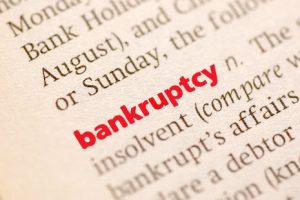Will I Lose My Social Security Benefits if I File Bankruptcy?

Many people count on Social Security benefits to make ends meet every month. These people are understandably wary of anything which might affect these benefits. Yet as a general rule, fear is a poor basis for any decisions you make.
In general, Social Security benefits are 100 percent exempt in bankruptcy matters. This exemption applies to both SSDI and SSI benefits. The Social Security Disability Insurance pays money to people with mental or physical disabilities regardless of age. Social Security Insurance payments are available based on age and the amount of money the worker paid into the system.
Additionally, in many cases, bankruptcy protects your government benefits. Bankruptcy stops creditor adverse action, such as wage garnishment, that could threaten your money.
Significantly, the Social Security Administration considers these benefits to be assets as well. So, on the off chance the trustee (person who oversees the bankruptcy for the judge) orders you to return the money, the SSA will probably give it right back.
Common Exemptions in a Chapter 13 Bankruptcy
Indiana law contains a number of bankruptcy exemptions. Creditors cannot take these assets to satisfy debts. The Hoosier State has so many exemptions because otherwise, debtors would not get fresh starts. If they lose all their stuff, the go back behind the financial starting line, and the Bankruptcy Code does not allow these kinds of handicaps.
Generally, government payments are exempt in bankruptcy proceedings. This exemption applies not only to Social Security benefits, but also workers’ compensation and other payments.
Some people are surprised that bankruptcy exemptions apply to what are essentially monthly payments. Indeed, most exemptions apply to fixed assets, such as:
- – Houses,
- – Motor vehicles,
- – Retirement accounts, and
- – Personal property items.
In Indiana, most of these exemptions are value-based. For example, the law exempts a certain amount of home equity as opposed to the home itself. Other exemptions, like the Social Security exemption and retirement exemption, are asset-based. These items are protected no matter how much they are worth.
Maximizing the Social Security Benefits Exemption
A bankruptcy attorney helps you maximize your exemptions, particularly the value-based ones.
A home is a good example. There is a significant difference between a home’s fair market value and its as-is cash value. That latter number must be listed on Schedule A. To determine the as-is value, many attorneys obtain offer letters from home investors. These “we buy houses for cash” investors normally pay a maximum 60 cents on the dollar for a no-inspection closing. Their first offer is usually a lot less than that.
In terms of Social Security payments, it’s normally important to keep this money separate from other income streams, such as part-time employment income or interest income. Separation prevents commingling, which can cause the trustee to question the value of the claimed exemption.
Always speak to a lawyer before you move money in anticipation of filing bankruptcy. Doing so incorrectly could cause significant problems later.
Count on Experienced Lawyers
Bankruptcy protects your assets, including your Social Security benefits. For a free consultation with an experienced Chicago bankruptcy attorney serving both Indiana and Illinois, contact the Bentz Holguin Law Firm, LLC. We routinely handle matters in Illinois and Indiana.
Resource:
ssa.gov/OP_Home/rulings/oasi/41/SSR79-04-oasi-41.html


